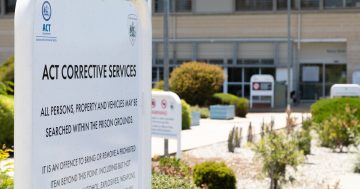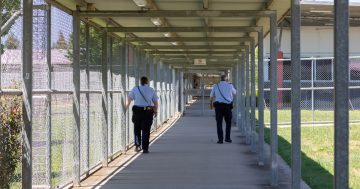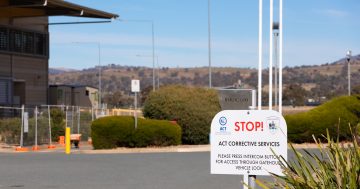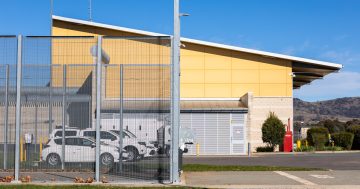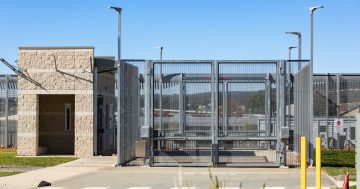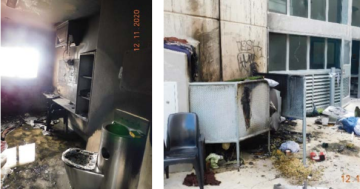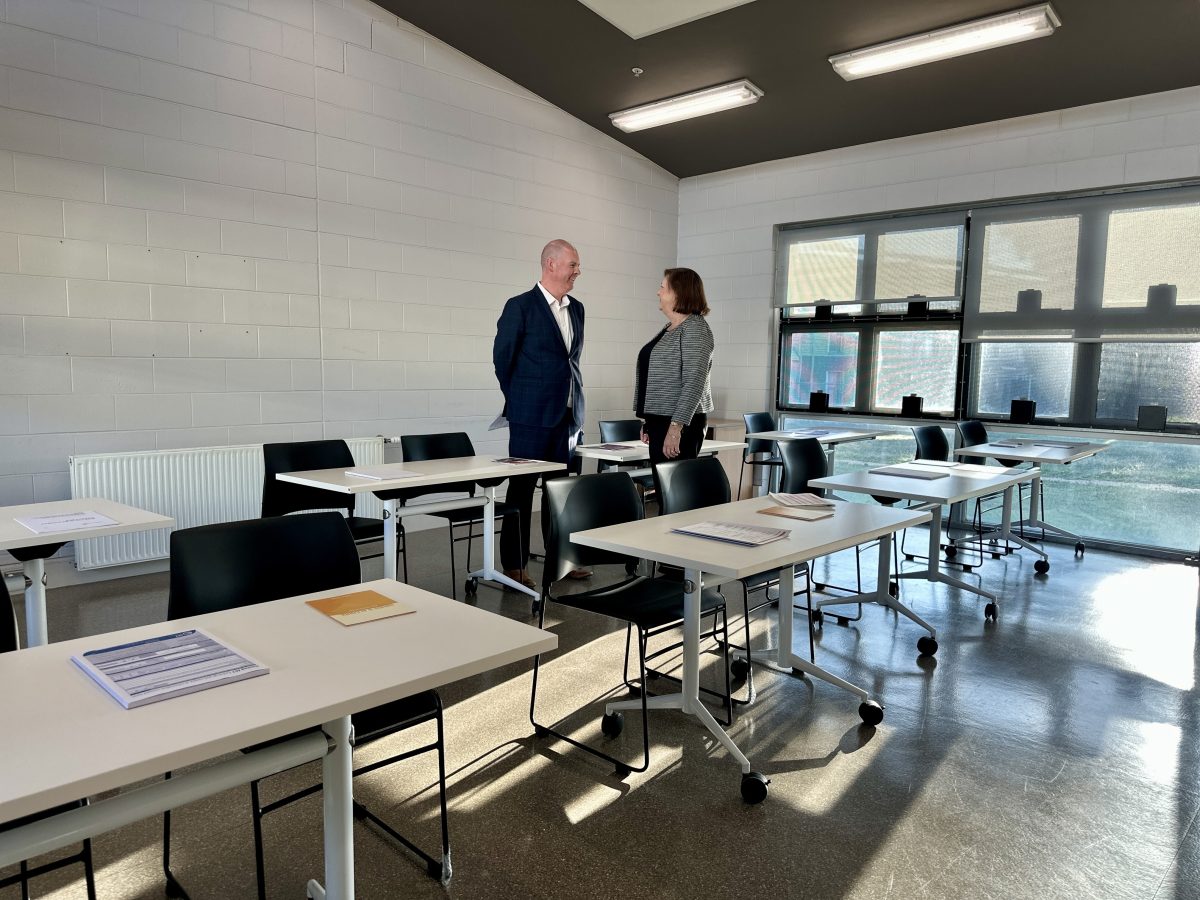
ACT Corrections staff inside one of the new education rooms, previously used as an office, at the Alexander Maconochie Centre. Photo: James Coleman.
Three years after the ACT’s prison was slammed as “past its use-by date”, executives say the situation has taken a big step forward.
The ACT Government has invested $8 million into the Alexander Maconochie Centre (AMC) in Hume to build a new administration block and by so doing, freed up the old staff quarters to use as classrooms for detainees to learn skills it’s hoped will improve their outcomes upon release.
“These new areas will increase the capacity to provide education and rehabilitation programs, helping reduce the likelihood of detainees reoffending and returning to detention,” ACT Minister for Corrections Dr Marisa Paterson announced this week.
The upgrades address a major criticism by the ACT Inspector of Correction Services in 2022.
The 2022 Healthy Prison Review found the AMC dangerously overcrowded and pointed out the health and visitor centres, in particular, were originally designed for a maximum prison population of 255 when it was holding about 400 at any one time.
But of most concern, it blamed a lack of structured activities for a spike in violence among detainees, including fights, vandalism and even in-cell fires.

Damage caused by a riot at the Alexander Maconochie Centre (AMC) in November 2020. Photo: Supplied.
Of detainees surveyed during the review, 79 per cent reported feeling bored due to a lack of meaningful activities – a massive increase on the 15 per cent figure reported by the previous review in 2019.
“The absence of education can have significant implications for detainees’ rehabilitation and future employment prospects. This matter must be addressed as a matter of urgency,” the report read.
This week, ACT Corrective Services Commissioner Leanne Close provided media a tour of the new and expanded educational spaces it’s hoped will resolve the issues.
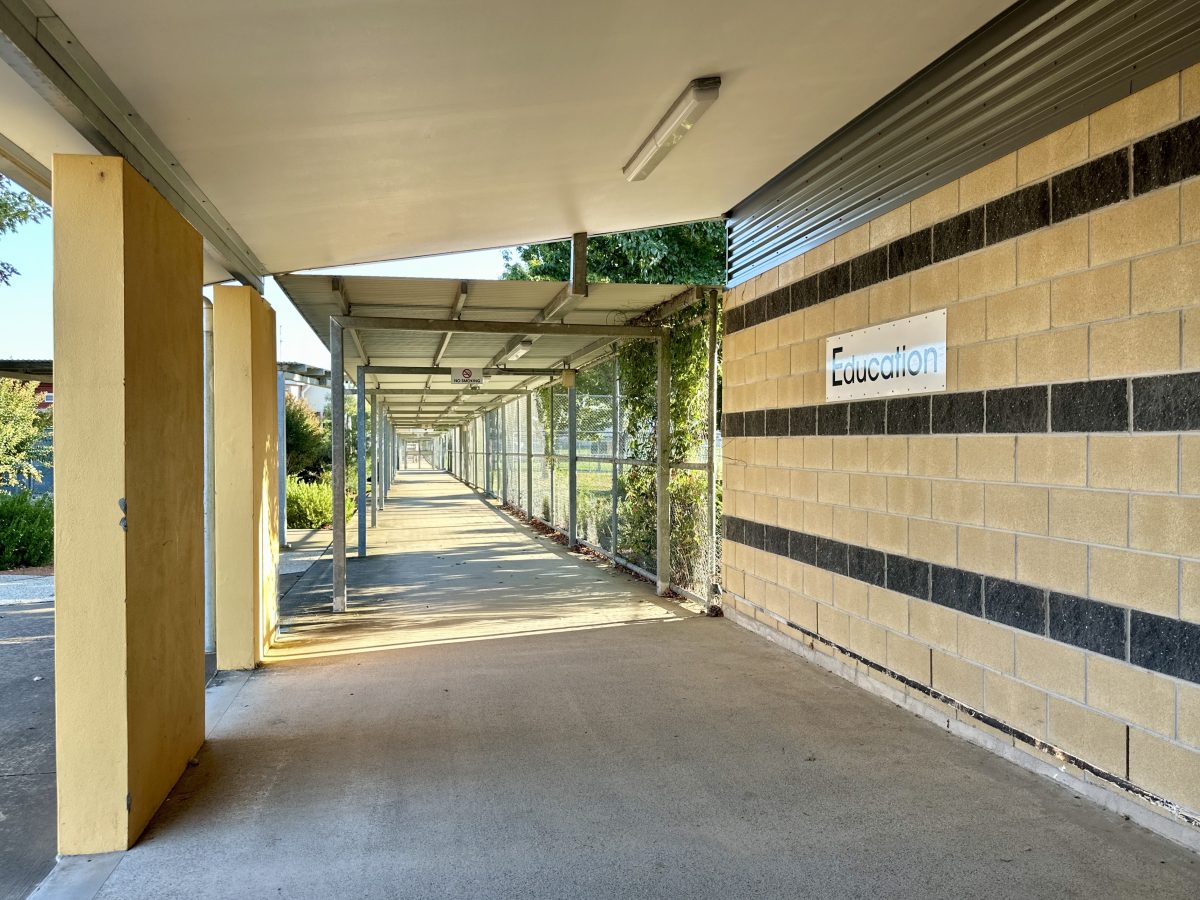
The new education block at the Alexander Maconochie Centre. Photo: James Coleman.
“Rehabilitation and reintegration into the community for our detainees is our utmost priority,” she said.
“So having programs space available where they can actually undertake education, or criminogenic-type programs to work on the issues that got them here in the first place, is really essential.”
Registered training organisations deliver the courses, covering areas such as construction, safe work practices, business, hygienic practices and food safety.
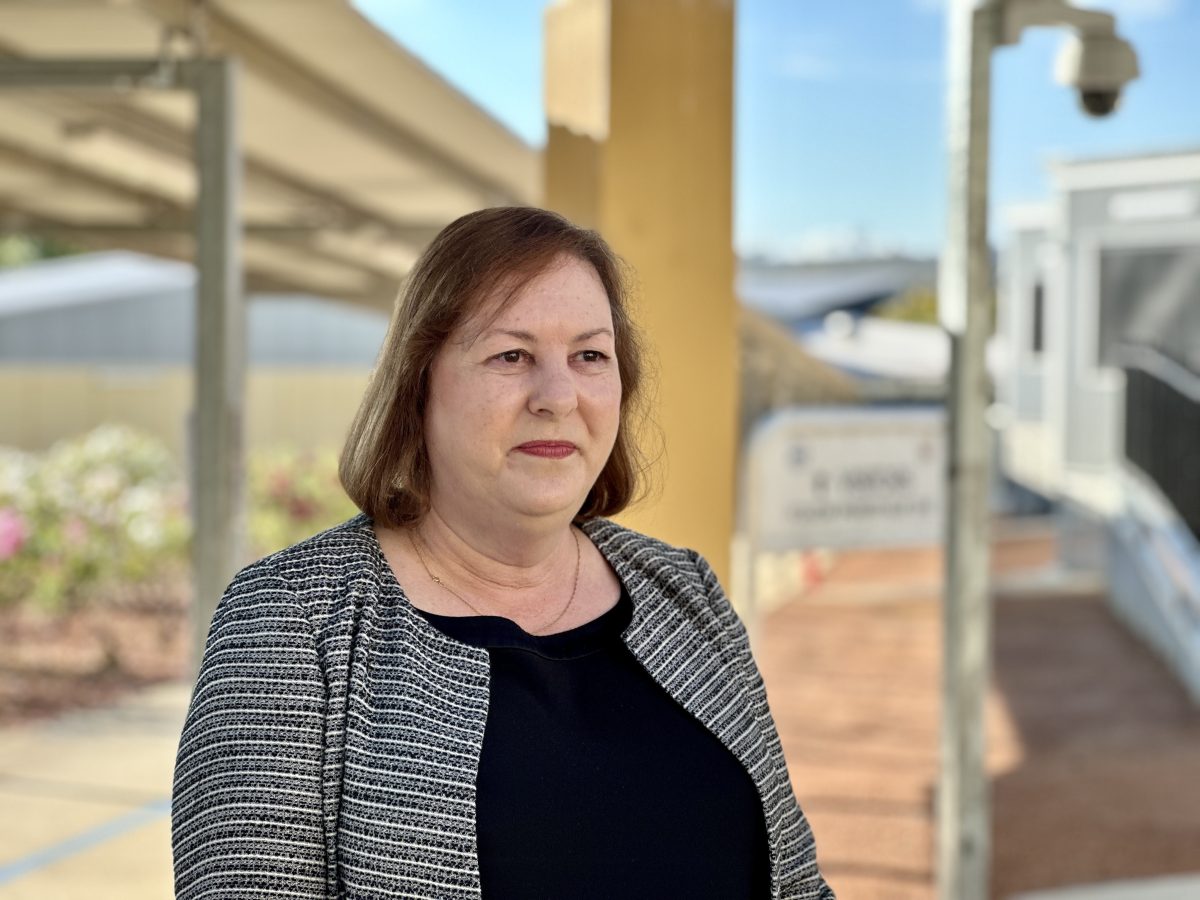
ACT Correction Services Commissioner Leanne Close at the Alexander Maconochie Centre. Photo: James Coleman.
Ms Close said it was up to the detainee whether they wanted to take part, but there was incentive.
“They’re obviously encouraged to because it helps them in addressing any behavioural issues, it helps them when they come up for a parole hearing – if that’s the pathway they’re on. But it also keeps them busy during the day and gives them an interest and skillset that will enable them to fold back into the community well.”
She said with more than a third of its detainees enrolled in education programs, the ACT remained “well above” the national average.
Ms Close said staff, who moved into the new administration building in February, found it “really helpful” having one big block rather than the previous smaller office spaces scattered across the centre.
“They’re working together and case managing individual issues better and sharing information a lot more freely.”
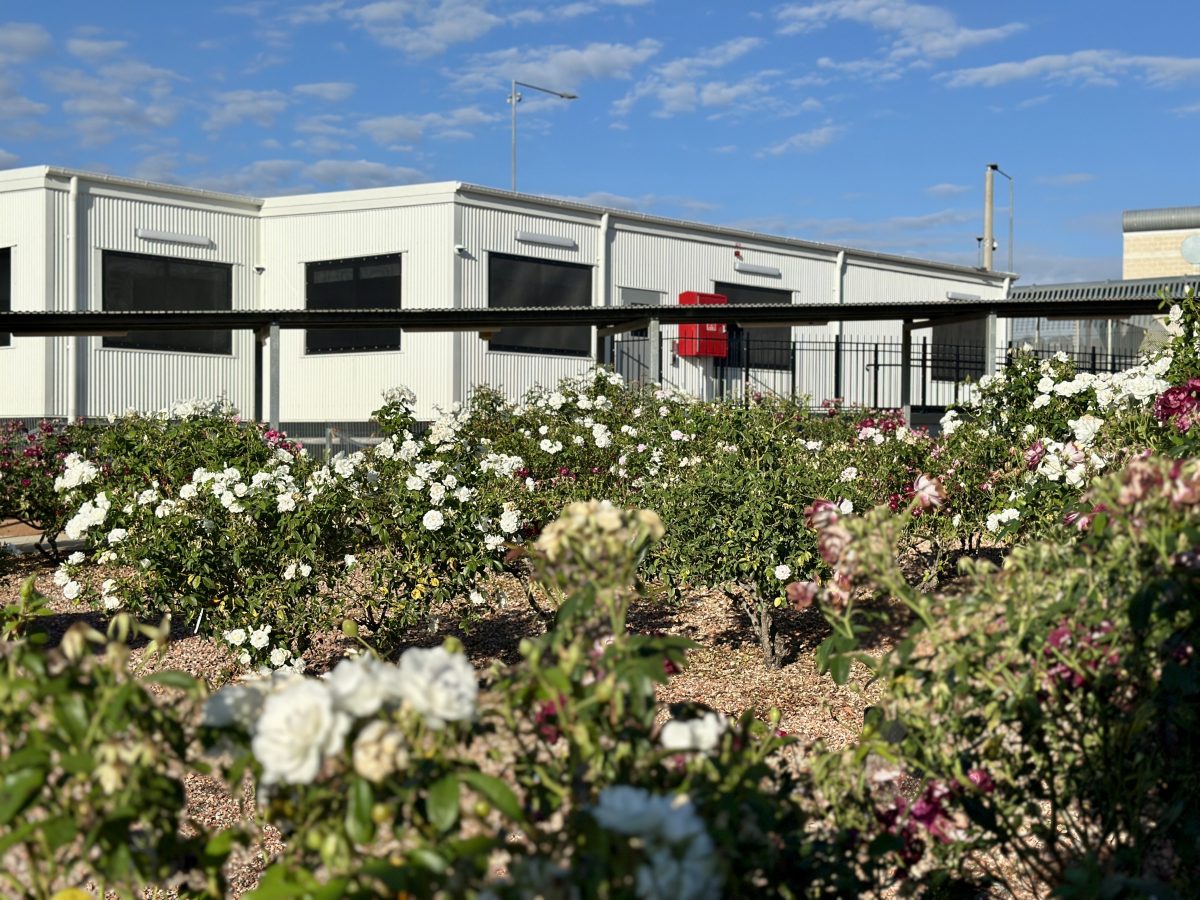
The new staff block at the Alexander Maconochie Centre is located near the visitors’ entrance. Photo: James Coleman.
She said corrective services would continue to work with the ACT Government’s Justice and Community Safety Directorate and Canberra Health Services to build a new health centre as part of the AMC masterplan covering the next 10 to 15 years.
“We have one central health area in the AMC now; it would be nice to have different spaces available. But that’s something we’ll look at through the masterplan.”
She said “a lot of refurbishment” in the women’s wing and upgrades to the family visit facilities had also been carried out.
“That continues, but we’re really pleased with the results we’ve achieved so far.”















